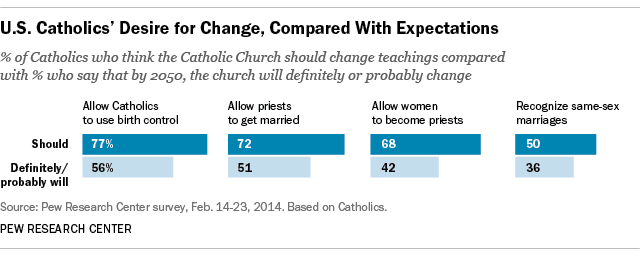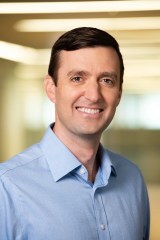Thursday marks one year since Pope Francis was elected to the papacy — a year in which the former Argentine archbishop’s tone and approach raised expectations of change in the church’s direction.
There’s little question that, after a year, he’s extremely popular – at least in the United States, where the pope is seen favorably by the vast majority of Catholics and even 60% of non-Catholics. A strong majority of American Catholics (71%) say that Francis represents a major change for the church, and among those, nearly all (68% of U.S. Catholics overall) call him a change for the better.
Many Catholics would like to see changes on specific church teachings, and some family issues (including contraception) will be discussed at an upcoming synod this fall. But they are less certain that those changes will happen, even under Francis.

Roughly three-quarters of U.S. Catholics (77%) say the church should allow birth control, while solid majorities also say the Vatican should permit priests to get married (72%) and female priests (68%). Half (50%) say the church should recognize same-sex marriages.
Considerably fewer Catholics actually expect to see such changes in the coming decades, although their expectations are growing when it comes to the issue of priests getting married. About half (51%) of U.S. Catholics say the church will definitely or probably allow priests to marry by 2050 – an increase from 39% saying this last year. Smaller shares expect the church to allow women to be priests (42%) or to recognize same-sex marriages (36%).
The pope’s impact as an agent of change can also be looked at in terms of the effect he has had on the church’s followers.
Although the share of the U.S. population that identifies as Catholic (22%) and the percentage of Catholics who report going to Mass at least weekly (40%) have not changed since Francis’ election, there are many ways to look at how the new pontiff has changed Catholicism. For example, about a quarter of U.S. Catholics (26%) say they’ve become more excited about their faith in the past year, compared with just 11% who have become less excited.
